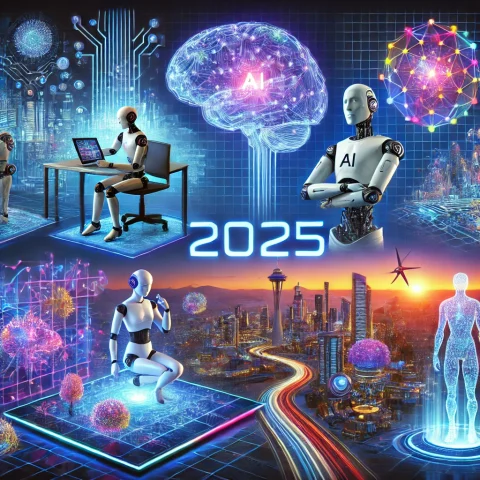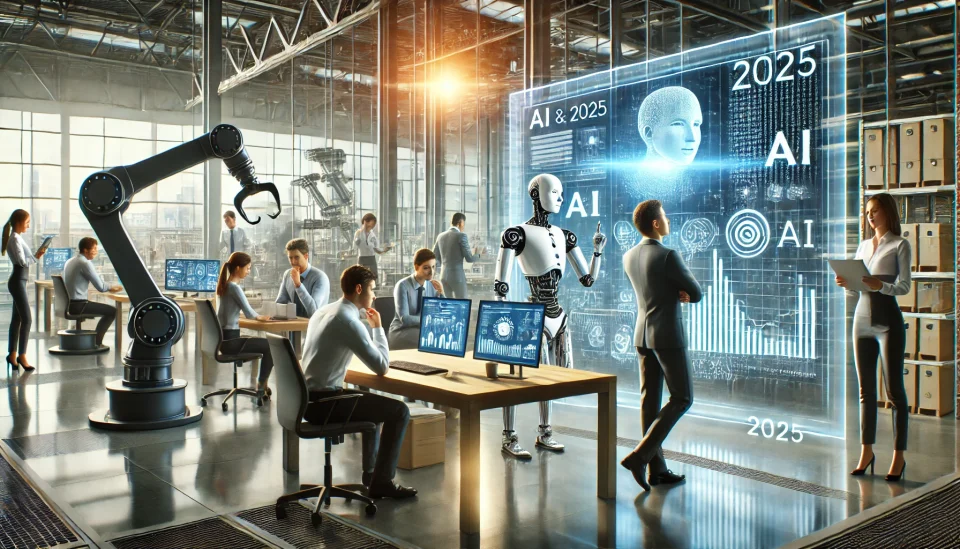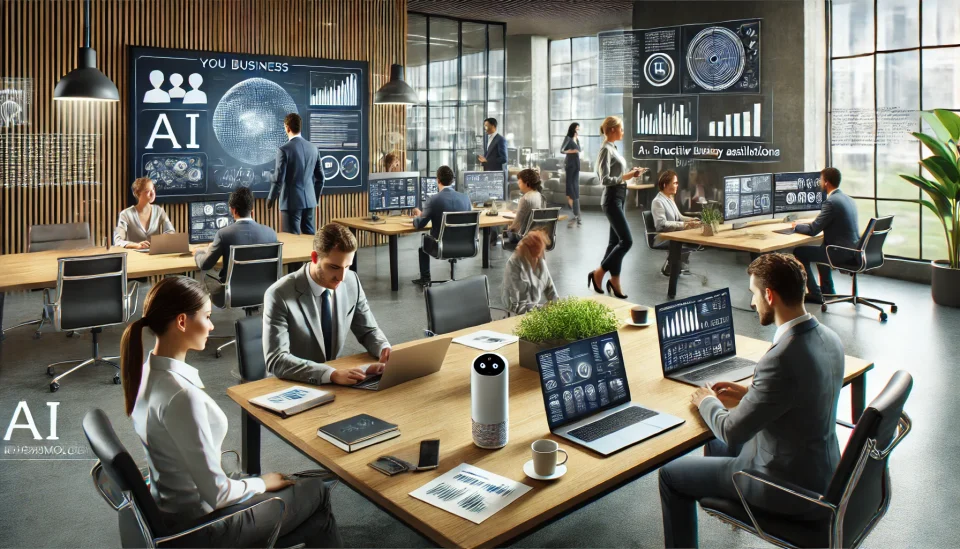
Understanding Induction, Recursion, and Program Correctness in Algorithm Design
January 13, 2025
Small Business Outlook 2025: Surging Confidence Signals Economic Recovery
January 15, 2025AI Trends 2025: Five Revolutionary Changes in Artificial Intelligence
The artificial intelligence landscape continues its explosive growth, with industry powerhouse Anthropic now poised to reach a staggering $60 billion valuation in its latest funding round, according to recent reports from Reuters and CNBC. As Forbes reports, this massive valuation is set to mint seven new billionaires among its founding team. Based on my analysis and recent market research, here are the five most transformative trends reshaping the AI industry in 2025:
1) The Rise of AI Agents: Your New Digital Workforce
The emergence of “agentic AI” – autonomous AI assistants that can work independently – is fundamentally changing how businesses operate. According to MarketsandMarkets’ latest report, the global AI agents market is projected to surge from $5.1 billion in 2024 to $47.1 billion by 2030. Even more optimistically, Roots Analysis predicts the market could reach an astronomical $216.8 billion by 2035.
This isn’t just speculative growth – we’re seeing real adoption across industries. According to AllAboutAI, 90% of hospitals are expected to adopt AI agents by 2025, driving advancements in predictive analytics, personalized care, and patient outcomes. Microsoft has already integrated these AI agents into their Microsoft 365 suite, offering real-time translation across nine languages, while OpenAI’s upcoming model promises to handle everything from travel bookings to complex coding tasks.
2) Test-Time Compute: Quality Over Speed
The AI industry faces a fascinating paradox: there’s only so much data available on the internet to train these models. Enter test-time compute, a breakthrough approach where AI models take their time to reason through problems, similar to human contemplation. OpenAI’s o1 model is leading this charge, earning praise from industry titans like Nvidia’s Jensen Huang and Microsoft’s Satya Nadella.
3) Synthetic Data: AI Teaching AI
While traditional data sources may be hitting their limits, AI companies have found an ingenious workaround: using AI-generated data to train new models. The startup Writer has already demonstrated the potential of this approach, developing a new AI model for just $700,000 – a fraction of the $100 million spent on OpenAI’s GPT-4.
According to BCC Research, the synthetic data market is on track to hit $2.1 billion by 2028, representing a staggering 450% increase from 2022. Major players like Anthropic, Meta, Microsoft, and Google are all exploring this territory, recognizing its potential to overcome data scarcity challenges.
4) 3D AI Worlds: Beyond Flat Screens
The next frontier in AI visualization is breaking free from 2D constraints. “Large world models” are emerging as the next big thing, with World Labs, founded by Stanford’s Fei-Fei Li, securing $230 million to develop AI with “spatial intelligence” – systems that can understand and interact with the physical world in ways previously limited to human perception.
Google DeepMind is making waves in this space too, having launched Genie 2 for simulating virtual environments. Their recent hiring of former OpenAI researcher Tim Brooks, who worked on the Sora video generator, signals their serious commitment to this technology.
5) The Search Engine Revolution
The days of Google’s unchallenged dominance in search might be numbered. While Google isn’t standing still – their AI Overviews feature is already attracting massive user numbers – new players are entering the field with innovative approaches to AI-powered search.
Perhaps most intriguing is Perplexity AI, now valued at $9 billion, which has seen its daily queries surge from 2.5 million to 20 million in early 2025. Meanwhile, Meta is reportedly developing its own AI search engine, suggesting we’re on the cusp of a dramatic reshaping of how we find and process information online.
Industry analysts at Grand View Research report that the overall AI agents market is growing at a compound annual growth rate (CAGR) of 45.1% from 2024 to 2030, reflecting the transformative impact these technologies are having across sectors. As these trends converge, they’re creating a new technological landscape where AI isn’t just a tool – it’s becoming an integral part of how we work, create, and interact with the digital world.
The enterprise AI agent market, in particular, is expected to follow a similar evolution to the cloud services market, according to industry experts, with a few dominant players emerging alongside numerous specialized providers. This consolidation could shape the competitive landscape for years to come.
As we move deeper into 2025, these developments aren’t just reshaping individual sectors – they’re fundamentally changing how we interact with technology and how businesses operate. The question isn’t whether AI will transform these areas, but how quickly and dramatically these changes will unfold.
For more information just like this, find more of my work at https://TrustITSec.com




